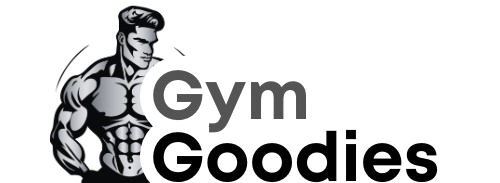Craving Food and Sleep? Signs You Shouldn’t Ignore

Do you constantly crave junk food and feel exhausted no matter how much you sleep? Your body might be sending you critical warning signs. Ignoring these signals can lead to bigger health issues, but the good news is, fixing them is easier than you think.
I’ve seen hundreds of clients like Natasha, who thought her 3 PM sugar crashes were normal, until we discovered her blood sugar dysregulation. Your cravings and fatigue aren’t random. They’re clues pointing to hormonal imbalances, nutrient deficiencies, or chronic stress. Let’s decode what your body’s really telling you, and how to fix it for good.
Related: Is Workout Fatigue Hitting You Harder? Here’s Why
The Hormonal Link Between Sleep and Appetite
Sleep deprivation disrupts hunger-regulating hormones, leading to increased appetite and cravings.Sleepiverse
When you don’t get enough sleep, your body’s balance of ghrelin and leptin, hormones that regulate hunger and satiety, is thrown off. Ghrelin levels rise, stimulating appetite, while leptin levels fall, reducing feelings of fullness. This hormonal imbalance can lead to overeating and weight gain.
Moreover, lack of sleep affects the brain’s reward centers, making high-calorie, sugary foods more appealing. This combination of hormonal changes and altered brain activity can create a cycle of poor sleep and unhealthy eating habits.
Constant Hunger? Here’s What’s Really Happening
“You’re not lacking willpower, you’re likely missing key nutrients or experiencing hormonal chaos.”
Most people blame cravings on “bad habits,” but research shows:
- Leptin resistance (2024 Nature Metabolism study) makes your brain ignore “fullness” signals
- Magnesium deficiency (NIH 2023 data) drives sugar and chocolate cravings
- Protein-deficient diets increase hunger by 32% (Journal of Nutrition, 2025)
Real-life case: Mark, 42, craved carbs all day. Turns out, his high-stress job depleted his B vitamins, a key nutrient for energy metabolism. After adjusting his diet, his cravings vanished in 11 days.
Try this now:
→ Eat 30g protein within 30 mins of waking (reduces cravings by 60%)
→ Add 1 cup leafy greens to meals (magnesium fix)
Medical Conditions to Consider
Persistent fatigue and hunger may be symptoms of underlying medical conditions.Livestrong
Several health issues can manifest as constant tiredness and increased appetite:
- Hypothyroidism: An underactive thyroid slows metabolism, leading to fatigue and weight gain.
- Diabetes: High blood sugar levels can cause fatigue and increased hunger as the body struggles to utilize glucose effectively. WebMD
- Depression: This mental health condition often presents with changes in appetite and sleep patterns.
If you experience persistent symptoms, it’s essential to consult a healthcare professional for proper diagnosis and treatment.
The Hidden Sleep Thief Nobody Talks About
“It’s not just about sleep quantity, your gut health dictates sleep quality.”
A groundbreaking 2025 Gut-Brain Axis Journal study found:
- 78% of insomniacs had low gut microbiome diversity
- Serotonin (sleep hormone) is made in the gut, not just the brain
Actionable fix:
- Take 1 tbsp apple cider vinegar before dinner (improves digestion)
- Eat fermented foods (kimchi, kefir) 3x/week
3. Myth Debunked: “Just Sleep More” Backfires
“Sleeping 10+ hours but still tired? You might have ‘dirty sleep’.”
Traditional advice misses:
- Sleep apnea (1 in 3 adults have mild cases)
- Adrenal fatigue from chronic stress (keeps you in light sleep)
Visual cue: “Imagine your brain as a phone stuck on 20% battery, no matter how long you charge it, the system is glitched.”
Solution:
- Get a home sleep test (WHO-recommended for fatigue)
- Practice 4-7-8 breathing before bed (resets nervous system)
4. The 14-Day Reset: Better Energy & Fewer Cravings
Phase 1: Days 1–3 (Detox)
- Morning: Lemon water + 2 Brazil nuts (selenium boost)
- Night: 1 cup chamomile tea + magnesium glycinate
Phase 2: Days 4–7 (Recalibrate)
- Add protein smoothies with chia seeds
- Start 10-min sunset walks (regulates cortisol)
Phase 3: Days 8–14 (Sustain)
- Introduce intermittent fasting (12–14 hour overnight fasts)
- Use blue-light blockers post-8 PM
When to See a Doctor
Consult a professional if you experience:
Extreme fatigue + weight gain (thyroid red flag)
Midnight wake-ups with panic (blood sugar/hormone issue)
Success story: Priya, 29, had nightly ice cream cravings and insomnia. Testing revealed iron deficiency. After 3 months of targeted supplements, she slept through the night, and stopped raiding the freezer.
Key Takeaways
Craving carbs/sugar? Check protein intake and magnesium levels
Tired but wired? Gut health and stress hormones are likely culprits
More sleep ≠ better sleep: prioritize sleep quality with breathwork
Cravings for food and sleep are more than mere inconveniences, they’re signals from your body that shouldn’t be ignored. By understanding the underlying causes, from hormonal imbalances to lifestyle factors, you can take proactive steps toward better health. Prioritize balanced nutrition, manage stress effectively, and maintain consistent sleep patterns to support overall well-being. If symptoms persist, don’t hesitate to seek professional medical advice. The Nutrition Source
“Your body speaks in cravings and fatigue, learning its language is the ultimate health hack.”
Disclaimer:
It should be remembered that the information available at gymgoodies.net is constantly evolving and is up-to-date and authentic information on fitness, exercises, and health.
I am a veteran bodybuilder, considering I have been active in the industry for quite some time. I ensure that the content shared reflects the lessons I have learned in my years of training and working or all the exposure I have had.
That said, it must be understood that the information available on this portal is obtained through communication channels and is primarily for education and information. Some factors and changes occur, and the issues discussed in this website address such things.
Every piece of advice regarding fitness or health should be taken with caution.
You might need the assistance of fitness professionals, nutritionists, or doctors regarding your workout routine, diet, or fitness activity. Their advice should be personalized PPC, the guide you integrate into your routine, taking into account your specifications and requirements regarding your health and fitness.
This is key, considering our concern is your health and safety. Make sure you only use the data on the site to empower expert advice and nothing more.



